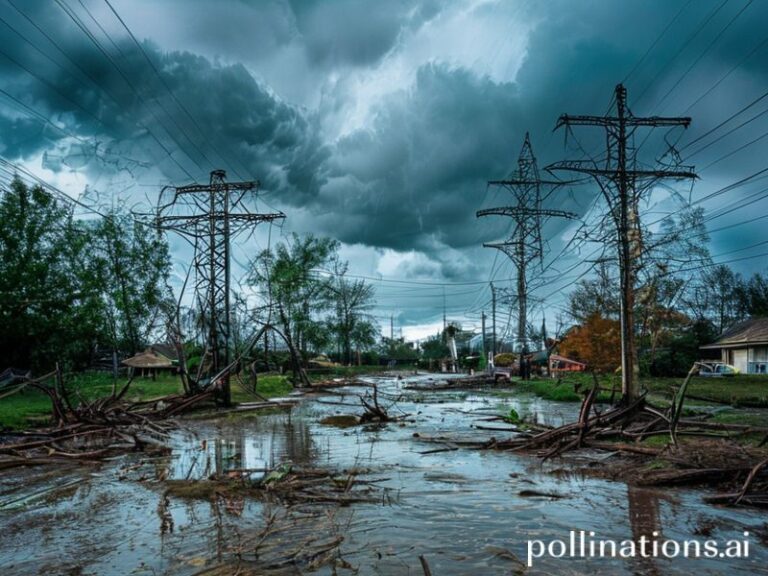Napoli-Pisa Express: The 600-Km Fault Line Where Global Risk Meets Italian Indifference
Napoli-Pisa: A 600-Kilometer Masterclass in How Geography Still Decides Everything
By the time your phone finishes loading the high-resolution satellite image of the Tyrrhenian coast, the train from Napoli Centrale to Pisa Centrale has already completed its 594-kilometer shrug across the Italian boot. Three hours and twenty-six minutes—barely enough time for a proper espresso, yet long enough to remind the planet that some borders refuse to be flattened by fiber-optic cable or blockchain. From the international gallery, the Napoli-Pisa corridor looks less like domestic travel and more like a controlled experiment in how latitude and attitude still trump algorithms.
To the hedge-fund analyst in Singapore, the route is a thin red line across a risk map: Campania’s public debt is a punchline at every emerging-markets cocktail hour, while Tuscany’s brand equity still props up European luxury ETFs. One click south and you’re buying volatility; one click north and you’re renting stability by the square meter—preferably facing the Arno at golden hour. The same analyst will later tell you he “loves authentic pizza,” blissfully unaware that the flour in his VPN-ordered Margherita was probably milled near Pisa, then trucked south to keep Naples from declaring flour independence. Globalization, it turns out, has a sense of humor drier than a Chianti Classico.
For the Ukrainian refugee scanning timetables in Kraków, the Napoli-Pisa stretch represents a rare sliver of Schengen predictability. After months of paperwork, her ticket is an act of faith: the promise that a seat reserved yesterday will still exist tomorrow, and that no sudden border tantrum will reroute her to a detention center run by the latest populist flavor of the month. She notices, with the black irony common to anyone who has watched borders redraw themselves overnight, that the train crosses no checkpoints at all—only invisible fiscal walls tall enough to keep entire generations on whichever side the bond markets prefer.
Meanwhile, in Silicon Valley, a start-up is pitching “Napoli-Pisa as a Service,” a cloud-based logistics layer that will reroute shipping containers from the port of Naples to the inland port of Pisa the moment AI senses an uptick in Tuscan e-commerce demand. Investors nod gravely, because nothing says “late-stage capitalism” quite like turning 2,000-year-old cities into draggable icons on a dashboard. The algorithm, of course, will never taste the espresso in Naples or the overpriced gelato near the Leaning Tower; it will simply optimize for the same dopamine hit that keeps human traders glued to their Bloomberg terminals. Progress, like cheap Chianti, is best served with a headache.
Climate scientists monitoring the Mediterranean add another layer of grim amusement. Both cities are sinking—Naples under the weight of volcanic subsidence and political neglect, Pisa under the gentler tug of alluvial compaction and selfie-stick tourism. The sea level doesn’t care which postcard you prefer; it will rise to meet whichever city forgot to fund its flood barriers while arguing about football transfers. In this context, the train schedule becomes a countdown: every departure another carbon-etched signature on the eviction notice served by Planet Earth, Esq.
And yet, cynicism only gets you as far as the next bar car. Watch the conductor punch tickets with the bored elegance of a man who has seen every scam from forged InterRail passes to NFTs, and you’ll notice something almost indecently hopeful: people still insist on moving from point A to point B, armed with nothing more than a sandwich wrapped in foil and the belief that tomorrow will not be entirely worse than today. That, in the end, is the international takeaway from Napoli-Pisa—an unremarkable line on a timetable that stubbornly reasserts the human desire to cross distances, even when the distances themselves are busy collapsing into sea-level trivia.
So when the train finally sighs into Pisa Centrale and the loudspeaker apologizes for the two-minute delay, feel free to roll your eyes at the bureaucratic precision. But remember that somewhere between Vesuvius and the Arno, a few hundred strangers just practiced a small act of collective optimism. We call it “catching the 14:32.” The universe, if it’s paying attention, probably calls it “cute.”







